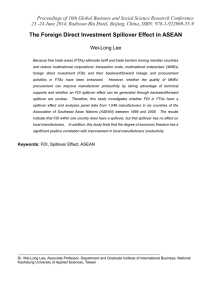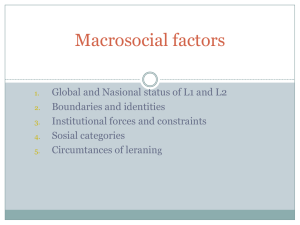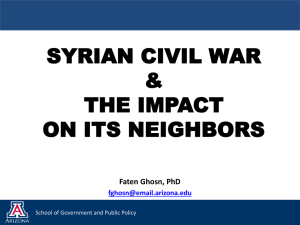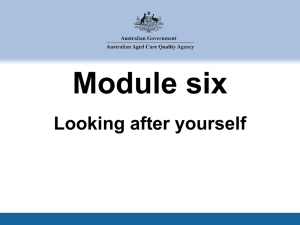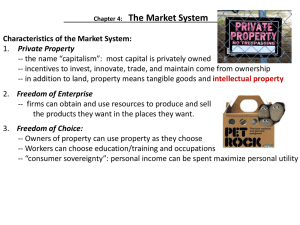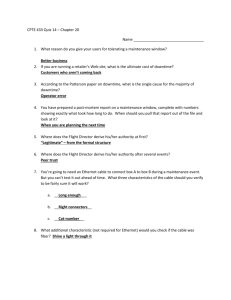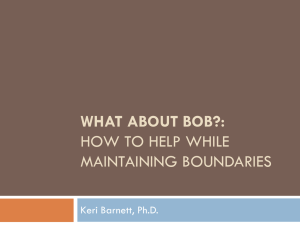transcript - Faculty and Academic Development
advertisement
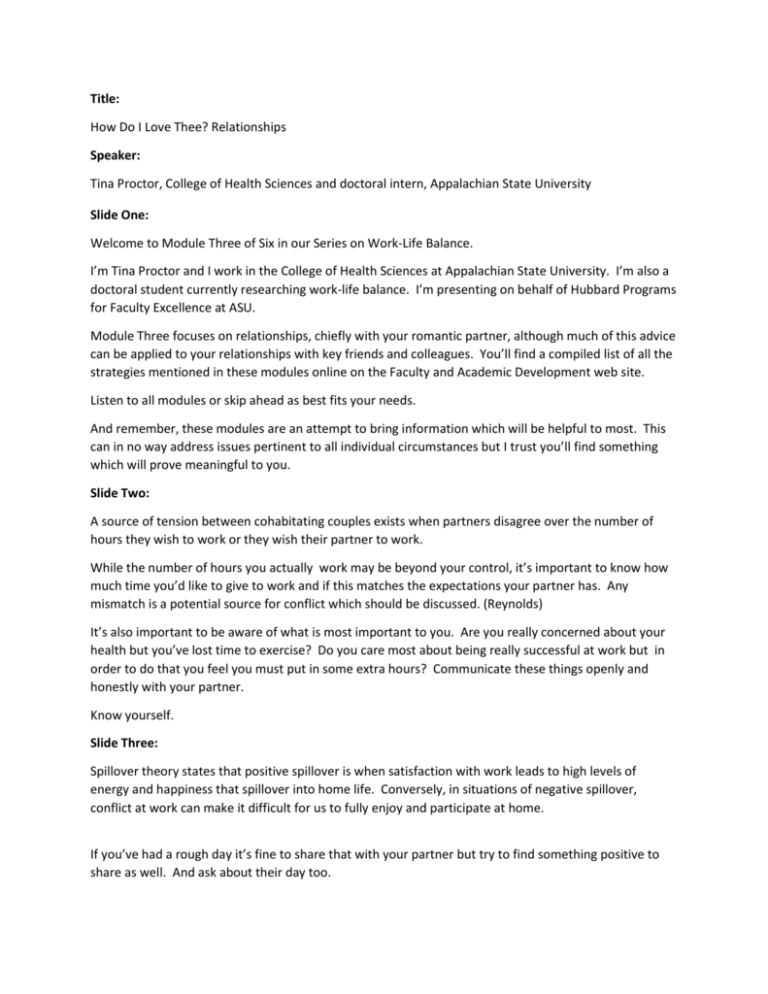
Title: How Do I Love Thee? Relationships Speaker: Tina Proctor, College of Health Sciences and doctoral intern, Appalachian State University Slide One: Welcome to Module Three of Six in our Series on Work-Life Balance. I’m Tina Proctor and I work in the College of Health Sciences at Appalachian State University. I’m also a doctoral student currently researching work-life balance. I’m presenting on behalf of Hubbard Programs for Faculty Excellence at ASU. Module Three focuses on relationships, chiefly with your romantic partner, although much of this advice can be applied to your relationships with key friends and colleagues. You’ll find a compiled list of all the strategies mentioned in these modules online on the Faculty and Academic Development web site. Listen to all modules or skip ahead as best fits your needs. And remember, these modules are an attempt to bring information which will be helpful to most. This can in no way address issues pertinent to all individual circumstances but I trust you’ll find something which will prove meaningful to you. Slide Two: A source of tension between cohabitating couples exists when partners disagree over the number of hours they wish to work or they wish their partner to work. While the number of hours you actually work may be beyond your control, it’s important to know how much time you’d like to give to work and if this matches the expectations your partner has. Any mismatch is a potential source for conflict which should be discussed. (Reynolds) It’s also important to be aware of what is most important to you. Are you really concerned about your health but you’ve lost time to exercise? Do you care most about being really successful at work but in order to do that you feel you must put in some extra hours? Communicate these things openly and honestly with your partner. Know yourself. Slide Three: Spillover theory states that positive spillover is when satisfaction with work leads to high levels of energy and happiness that spillover into home life. Conversely, in situations of negative spillover, conflict at work can make it difficult for us to fully enjoy and participate at home. If you’ve had a rough day it’s fine to share that with your partner but try to find something positive to share as well. And ask about their day too. Slide Four: The types of boundaries you set are important. Segmenters prefer to keep work and life boundaries clearly defined and view working late as an intrusion or violation of their boundaries. Integrators prefer blurred boundaries and will use tools at their disposal to take advantage of perceived breaks at work to pursue other interests and vice versa. Studies show integrators work significantly more hours per week than segmenters as they work during regular work hours and also extend their working hours during evenings and weekends. Know your preference and that of your partner. Know what works for your family and decide, as a family, if it’s acceptable to take calls and answer e-mails during the evening. Maybe you turn off the phone during dinner? Have these conversations BEFORE issues arise. Slide Five Everyone needs a support system. You’ve probably found a group of friends and colleagues whom you regularly go to for advice and mentorship. Consider adding your partner to that list. If you’ve communicated what’s important to you, a strong partner can help you make good, deliberate decisions. He or she can help you manage your time, your health and your energy. And don’t expect your partner to automatically know when you need support. It’s fine to tell your partner you need help and, specifically what sort of help you need. This is your partner for a reason. Slide Six: Perhaps downtime is rare for you but we all have those moments of perfect, blissful downtime. Embrace it for what it is. Turn off your phones and don’t check e-mail. (Thurston, Brooks) Drop any activity that drains your energy or time. Relax or move, whatever you prefer, but spend time together and be present in the moment. Don’t worry about what happened yesterday or will happen tomorrow. Embrace downtime for the gift it is. Slide Seven: The importance of communication can’t be stressed enough. As you communicate your needs, preferences, and boundaries to your partner and as you look to this person for support and someone to spend your leisure time with, don’t forget the important work of listening to your partner, as well. You will not always agree but you will learn a lot by making sure communication is a two-way street. Slide Eight: The first duty of love is to listen. Slide Nine: Bibliography


